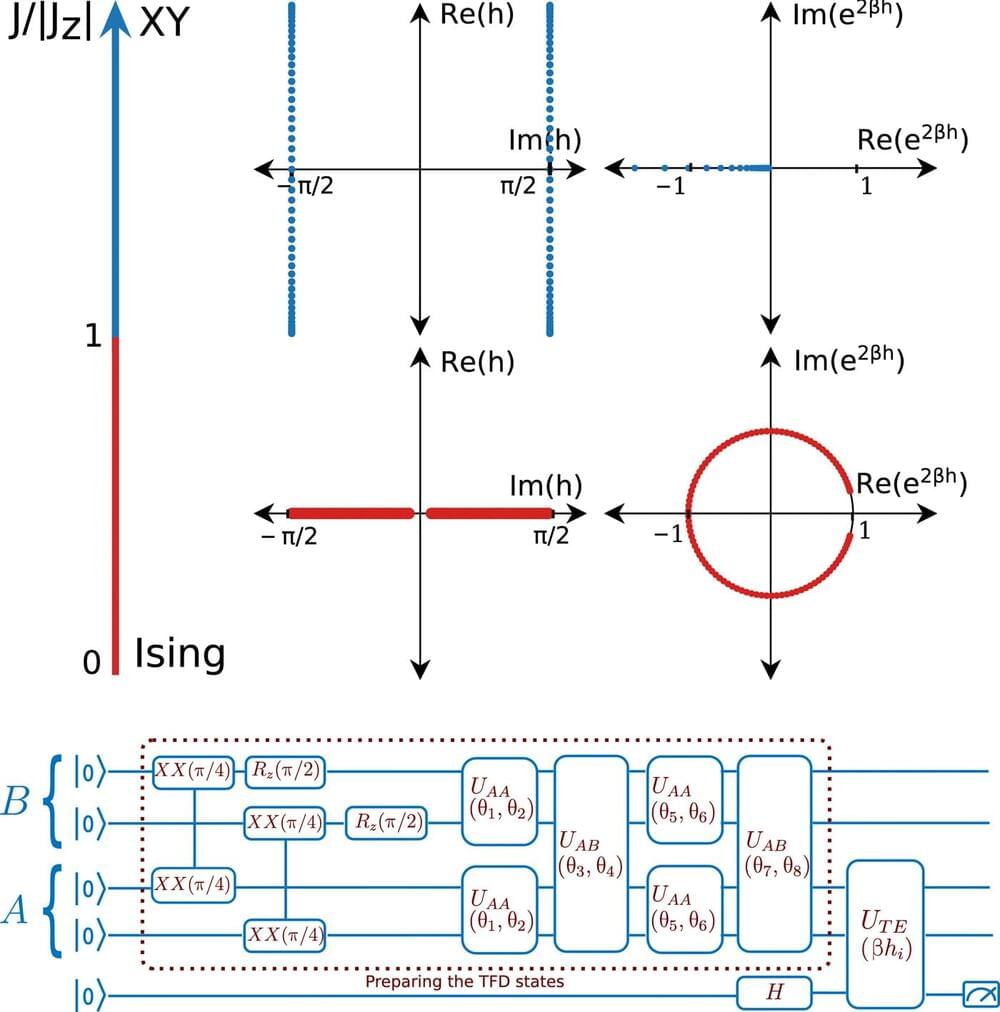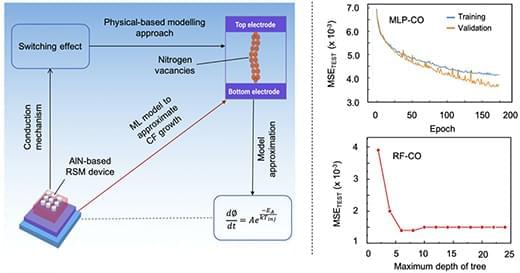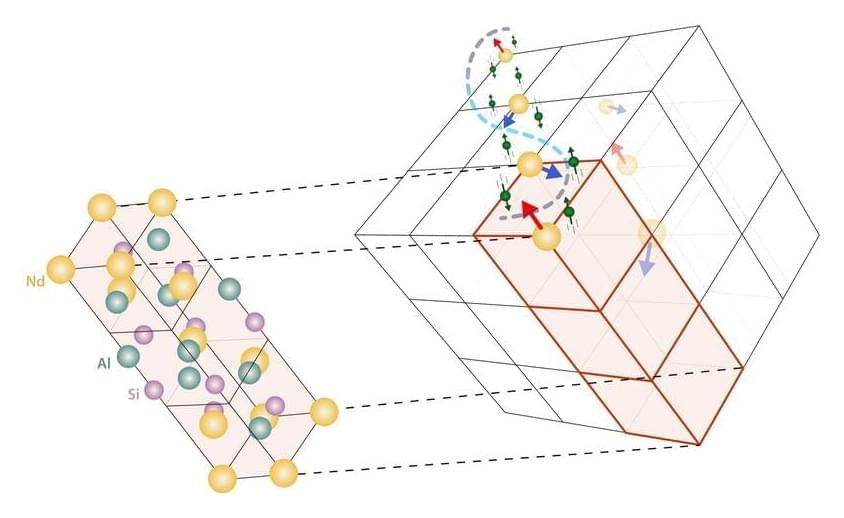Partition functions are ubiquitous in physics: They are important in determining the thermodynamic properties of many-body systems and in understanding their phase transitions. As shown by Lee and Yang, analytically continuing the partition function to the complex plane allows us to obtain its zeros and thus the entire function. Moreover, the scaling and nature of these zeros can elucidate phase transitions. Here, we show how to find partition function zeros on noisy intermediate-scale trapped-ion quantum computers in a scalable manner, using the XXZ spin chain model as a prototype, and observe their transition from XY-like behavior to Ising-like behavior as a function of the anisotropy. While quantum computers cannot yet scale to the thermodynamic limit, our work provides a pathway to do so as hardware improves, allowing the future calculation of critical phenomena for systems beyond classical computing limits.
Interacting quantum systems exhibit complex phenomena including phase transitions to various ordered phases. The universal nature of critical phenomena reduces their description to determining only the transition temperature and the critical exponents. However, numerically calculating these quantities for systems in new universality classes is complicated because of critical slowing down, requiring increasing resources near the critical point. An alternative approach is to analytically continue the calculation of the partition function to the complex plane and determine its zeros.
The partition function is a positive function of multiple real parameters representing physical quantities such as temperature and applied fields. When the partition function is analytically continued in one of the respective parameters, its zeros show notable structure for a variety of models of interest. Lee and Yang (1, 2) studied the partition function zeros of Ising-like systems in the complex plane of the magnetic field h and found that, at the critical temperature (and in the thermodynamic limit), the loci of zeros pinch to the real axis. Alternatively, Fisher (3) studied the partition function zeros by making the inverse temperature β complex.









